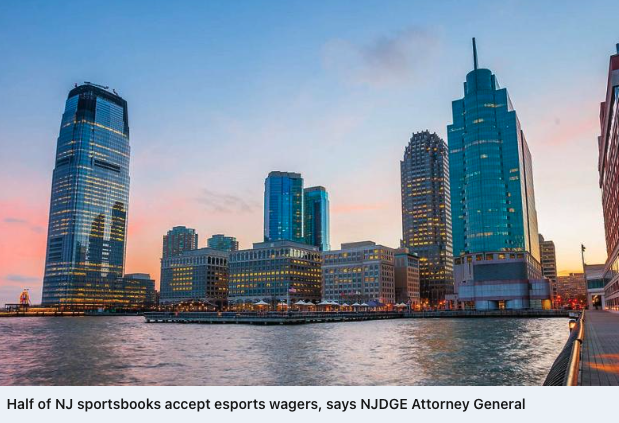Esports and gambling stakeholders came together during a panel session at the Casino Esports Conference in Las Vegas earlier this month.
The session was rife with topical subjects and interesting insights, and thanks to CDC Gaming’s Buck Wargo, we have a summary of the panel commentary we can recap here with some added analysis.
New Jersey Division of Gaming Enforcement Deputy Attorney General Anthony Strangia said that about half of the state’s licensed sportsbooks accept esports wagers. That’s a fairly significant percentage of operators, especially since New Jersey passed A637 to include esports in the state’s legal sports betting industry only two years ago in 2021.
A closer look at New Jersey’s approved event list shows that catalog has grown amply since. The list (last updated in January) includes key blanket approvals across the primary competitive leagues for Valorant, League of Legends, and the Call of Duty League, as well as Dota 2 and Counter-Strike tournaments organized by ESL.
Strangia added that there is more to come, too.
“The events approved are increasing, so we anticipate esports wagers as a volume of total wagers will increase in the future,” he said. “I think we’re on the right track.”
I reported extensively on NJ’s esports betting push around that time, but in the current paradigm where market diversity and product differentiation are expected to be the key business movers in online betting this year, esports clearly has something it can bring to the table.
Speaking on the topic a few years back, gambling industry investor and analyst Chris Grove told me that activating even a dozen customers they otherwise wouldn’t through esports is “a meaningful win.”
“It’s not an NFL Sunday, but you have to remember in New Jersey, and in any state market, the opportunity to gain or reactivate, even dozens of customers, let alone hundreds or thousands, with a new product or a new market – that’s material.” Grove said. “You don’t need big customer numbers to move the needle.”
But more broadly in the US, Oddin CEO & Founder Vlastimil Venclik says operators and regulators are playing chicken with one another, both hesitant to take the first step, and investment, to bring the market to life.
“New tournaments are created every year and it takes time for approval,” Venclik said, calling for that process to be expedited. “Otherwise, it’s too complicated for sportsbooks to accept wagers on esports. It’s the chicken and the egg in the U.S. Everyone says it’s going to be slow, so we won’t invest more, but if they don’t invest more, it won’t be big. It’s a never-ending cycle.”
Paris Smith, the CEO of Pinnacle, one of the first sportsbooks to accept esports wagers, agreed that the conversation needs to start with regulators if we want to see the segment reach the heights it has internationally in the states.
Smith also noted that data and game providers are gouging prices at the pump, charging high-ticket fees for a market which doesn’t yet have the audience or framework to recover those costs.
“The data and game providers have a huge play in this, but the problem is they’re making it too expensive for how small it still is at this stage,” Smith said. “As an operator, how do you pay $1 million a year for data when you don’t have anyone playing in esports. It’s an ecosystem that has to come together — starting with the regulators and the marketing for how you get these players.”
Esports betting content marketer Thomas Lace told Sharpr that Smith’s point highlights a key challenge in the space.
“Considering the market correction in esports more broadly, operators may be considering agreements with data suppliers more geared towards the long play – revenue share,” Lace said.
“This is ultimately a good thing. It’s a strong motivator for every part of the supply chain to innovate their products and improve performance with the same goal: to sustainably grow the esports betting pie.”
🦈 Sharpr Take: I think most interesting to me here is learning about the esports pickup from operators in New Jersey, which as far as I know, has gone relatively under the radar.
I’d be quick to point out shortcomings in the NJDGE’s approved event list. I frequently poke fun at Nevada whose only pre-approved esports event is the Golden Tee World Championship, but this is far from that.
This list comprises the most popular esports globally (and certainly those that are wagered on most frequently) and blankets the game titles by its organizers, calling out Riot Games and ESL, specifically. Between those two entities across the titles they operate, including League of Legends, Valorant, Dota 2, and Counter-Strike, you’ve covered the majority of tier-one competition in those respective communities.
That’s a job well done, New Jersey.
https://sharpr.substack.com/p/half-of-nj-sportsbooks-accept-esports

